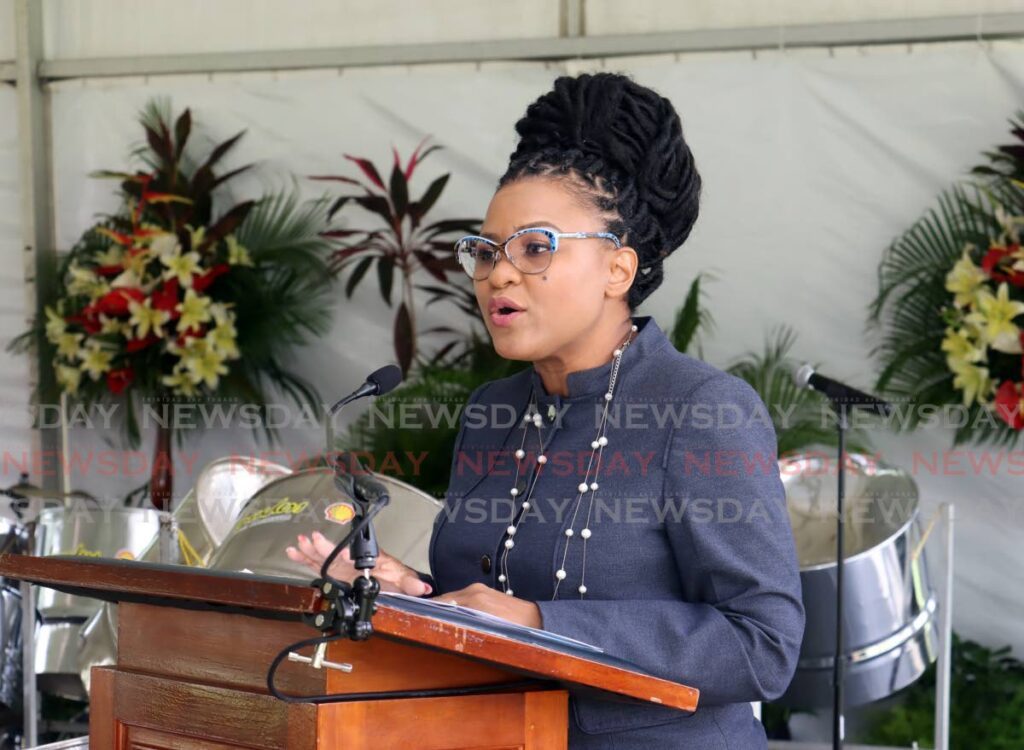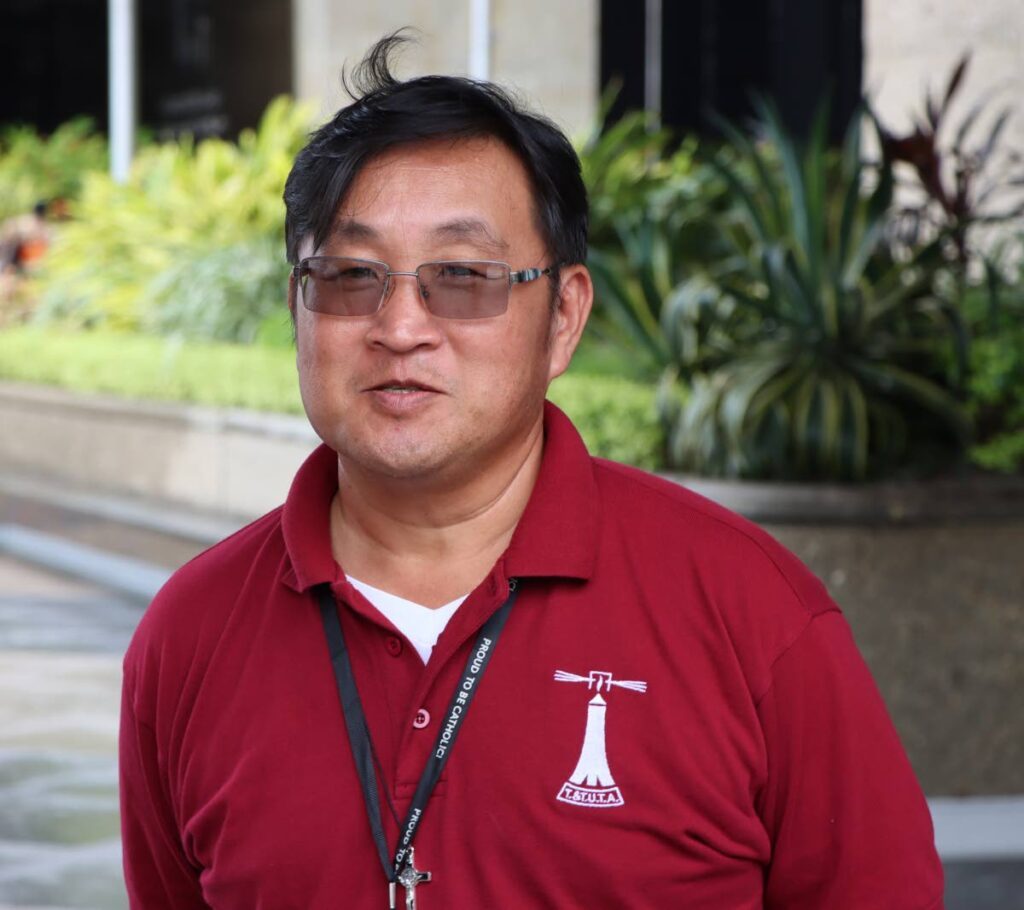Education Minister, TTUTA: CXC results good but more needs to be done

EDUCATION Minister Dr Nyan Gadsby-Dolly said while it was expected that TT students would exceed the region in the CSEC and CAPE examination results, more work was needed. TTUTA president Martin Lum Kin echoed her sentiments.
On August 20 at a ceremony in Dominica, CXC CEO/registrar Dr Wayne Wesley said regionally, only six per cent got five subjects or more, and 4.9 per cent of students got five passes inclusive of English and maths.
A statement from TT’s Education Ministry on August 21 said 58 per cent of pupils passed five subjects and 45 per cent passed five subjects, including maths and English.
It said the number of TT pupils getting a full certificate of five passes, including English and maths, was 45 per cent, and the 58 per cent of TT pupils getting five subjects exceeds the regional average of six per cent.
Responding to questions from Newsday via WhatsApp on August 23, Gadsby-Dolly said TT has always been one of the best-performing countries in the region.
“That is not a new phenomenon. This is attributed to our long-standing policies on education and the large investment we have consistently made in this regard, regardless of which government was in place.
“Free tuition from ECCE to secondary, free examinations, breakfast and lunch for those who need it etc, these are policies that have positively impacted the performance of students in TT.”
She said while the ministry celebrated the students who had done well, they understood that many are still recovering from the long-lasting effects of losing almost two years of physical school to the covid19 experience.
“Others are struggling without the right level of guidance available to them. Many students still need a lot of support, and this is what the ministry is supplying to 26 secondary schools and 80 primary schools to mitigate the effects of the learning loss some students would still be grappling with.
“Therefore, the increase in Student Support Staff, the restorative practices, the cultural transformation policy, teacher training in remedial maths, English and writing, these are all measures that are currently in place at schools to assist students to be more successful.”
Gadsby-Dolly said a contract had recently been awarded through iGovTT for the implementation of an online numeracy solution for the schools of focus, which would be rolling out in the next academic year.
“The TT Learning Assessment (formerly the National Test) was also restructured in 2022 to yield results in a faster time, which informed the training of teachers, especially in remedial maths and English, in the last academic year.
“The TTNLA shows the particular areas of weakness in maths and English, giving schools and teachers specific information about what topics present the greatest challenge and require the deepest focus.”
TTUTA president Martin Lum Kin said he was not surprised at the performance of students locally, as TT has always done well and exceeded the regional average.
“This is due in part with our educational professionals who would have done quite a bit to prepare these students for these external regional examinations.”
He called on the Education Ministry to make a deeper and more in-depth analysis of the statistics from the examinations.
The statistics received from the ministry showed results from students who did five subjects, including English and maths, or more, and those who attempted any five subjects or more.

“It is alarming that you would have just about 50 per cent getting a full certificate.
To use five subjects or more, excluding English and maths, we can’t understand why you would want to count that, as a full certificate includes English and maths.
“If you don’t have maths and English, that doesn’t count as a full certificate, so maybe this is something the ministry could clarify.”
He said the better performance at CAPE than CSEC was not surprising.
“Most students who go on to CAPE would have done well at the CSEC level, and those who did not get their full certificate or even have done well enough to go into A-Levels, so people at the lower and middle ends might not go into CAPE, so you would have the higher-achieving ones going into CAPE.”
He said he hoped, with a deeper analysis, the ministry would put measures in place to assist students in performing well in the future.
“The low performance is due to a number of factors, some within the school and some external, which the ministry should know.
“There will be instances where you have violence and indiscipline, which affects the ethos of the school and learning as well; lack of resources; and vacancies that are not filled, so you have the challenge of certain subject areas not having the complement of educators for the subject to be done effectively, so you have some subject teachers having to have more than their number of classes.”
He said another factor was the learning loss experienced during the pandemic. He also advocated for the continuous professional upgrade of educators.
“They should be re-skilled, re-tooled and be utilising best practices. Use of technology should be done in a systematic way, such that it would enhance the teaching and learning process.”
Lum Kin reminded the education system was dealing with the flesh-and-blood lives of students.
“Statistics may be best used in other areas and professions, but when it comes to children, statistics are not the best way to analyse the system because you’re looking at an average performance.
“We are a society that likes to celebrate those who are high-achievers, but we must pay more attention to the lower end of the spectrum and put measures in place to strengthen them, and not just by revamping the present curriculum.”
He said TTUTA would always advocate for more attention to be paid to the technical-vocational areas.
“The ministry has signalled they are looking in that area, but we believe it is not being done in a quick time.
“We want to say that technical-vocational areas have been seen in the past as an area for ‘dunce’ children, but that is not the case.
“People who engage in technical-vocational areas are very intelligent.
“They may not always be in terms of our mainstream curriculum but there is a high level of critical thinking that takes place within the technical-vocational area.”

Comments
"Education Minister, TTUTA: CXC results good but more needs to be done"